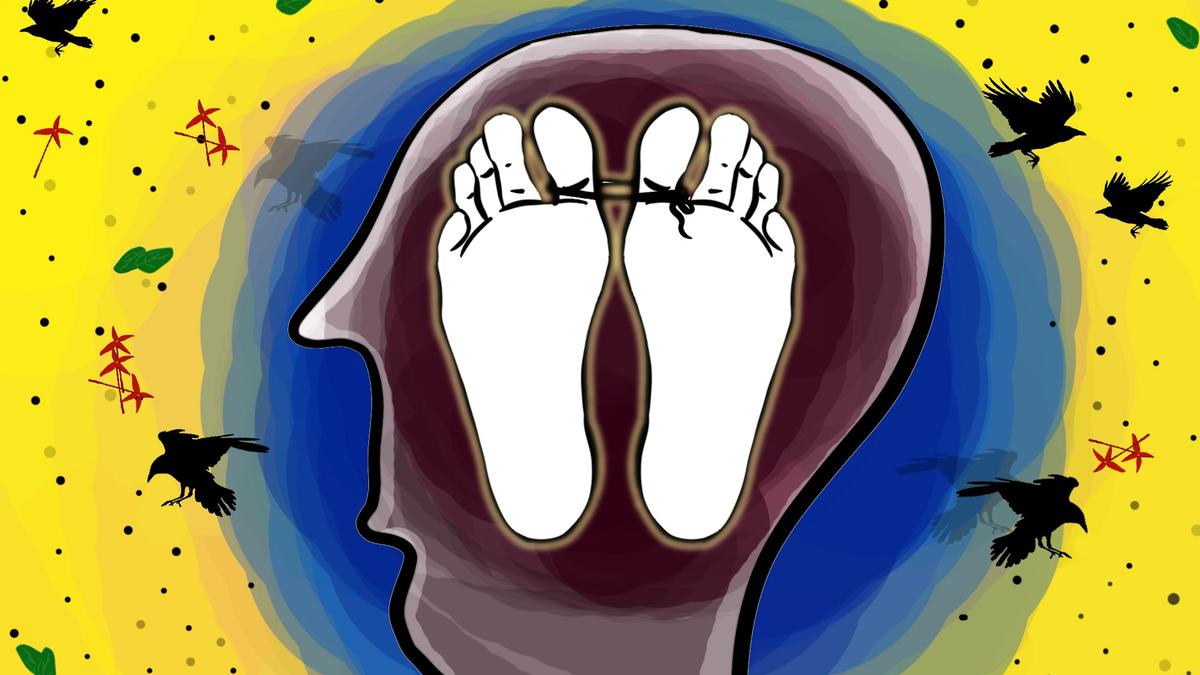Death is a great leveller.
| Photo Credit: Sreejith R. Kumar
Two deaths in two weeks — first, my father and second, a close colleague — made me ponder the last rites of passage of humans. My father was 85, and the colleague was in his late 50s. I knew they were heading towards the finishing line of life’s race, but I did not foresee the race ending so soon.
I had a long conversation the night before my father was rushed to the ICU after a sudden stroke. We discussed the mundane — his health, literature, our ancestral house, the recently concluded general election. His spirit was high. He asked me what would happen to our ancestral establishment after he was gone, to which I mused, “You will score a century, Papa.” He laughed. I told him I would visit him within a month or two. He was mentally alert and, as always, enthusiastic to know things, though physically frail. Something similar was with the colleague, though he had been fighting cancer for some time. His spirit was high when I met him at the hospital, though he looked feeble. We talked about diplomacy, personal lives and some professional chatter. I left him with the impression that I could meet him again. Both betrayed my expectations. The end for both happened unexpectedly, sooner than I had anticipated.
My encounters with personal losses have been few. When I was six, I lost an elder sibling and my parents a son. He was two years older than me. He stood first in the district in the primary school scholarship examination. He was bright, the people around him used to remark. His results came after he was gone. My parents, especially my mother, were devastated. She carried him in her heart till the end. My faint memory of him was when we were playing outside our house in the rain, wearing a grey half-piece and a white shirt. I had his only black-and-white photograph for many years in an album, which I lost during one of my transfers from one country to another.
In my youth, I do not remember attending many condolences except holding the frozen body of a friend at university who passed away while sleeping after having a sumptuous dinner and drinks.
Twelve years ago, I lost my mother to prolonged diabetes. She passed away when I was not in India. When I reached home, she was on ice. I took part in the funeral and went through the rituals. She was the most precious treasure for me. No one read my mind the way she did.
The COVID-19 pandemic was chillingly horrific. I lost both my uncles in one week. I was serving abroad. I was told that both were lucky to receive communal funeral services at that time of catastrophe. Both were my teachers at school.
Over the years, I realised that one does not fear death for oneself but for the near and dear ones. If one has a family, one often thinks of the children, the spouse and dependent parents — what will happen to them after one is gone? In a sense, untimely death is scary because it may shatter the lives of the living. As time passes and one fulfils one’s social and familial duties and responsibilities towards the loved ones, one feels lighter and more prepared to face reality.
Over the years, my perspective of death has evolved from an intricate Shakespearean notion of “cowards die many times before their deaths” and “the valiant never taste of death but once” to a more lucid one, that of certainty. As I saw my father and colleague rest in peace, Marcus Aurelius came to mind, “Death smiles at us all; all a man can do is smile back.”
arun.sahu68@gmail.com
Published – October 06, 2024 03:05 am IST

